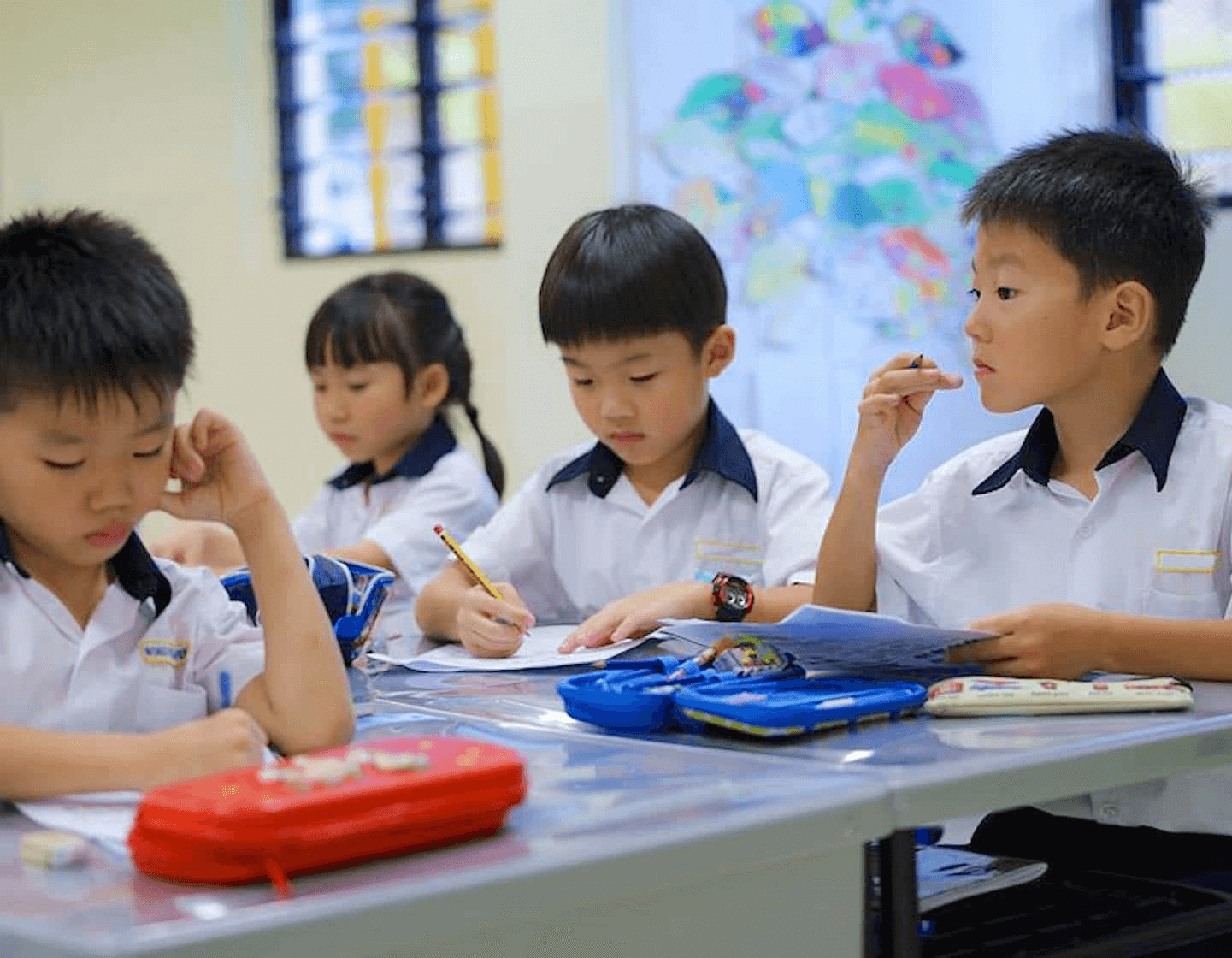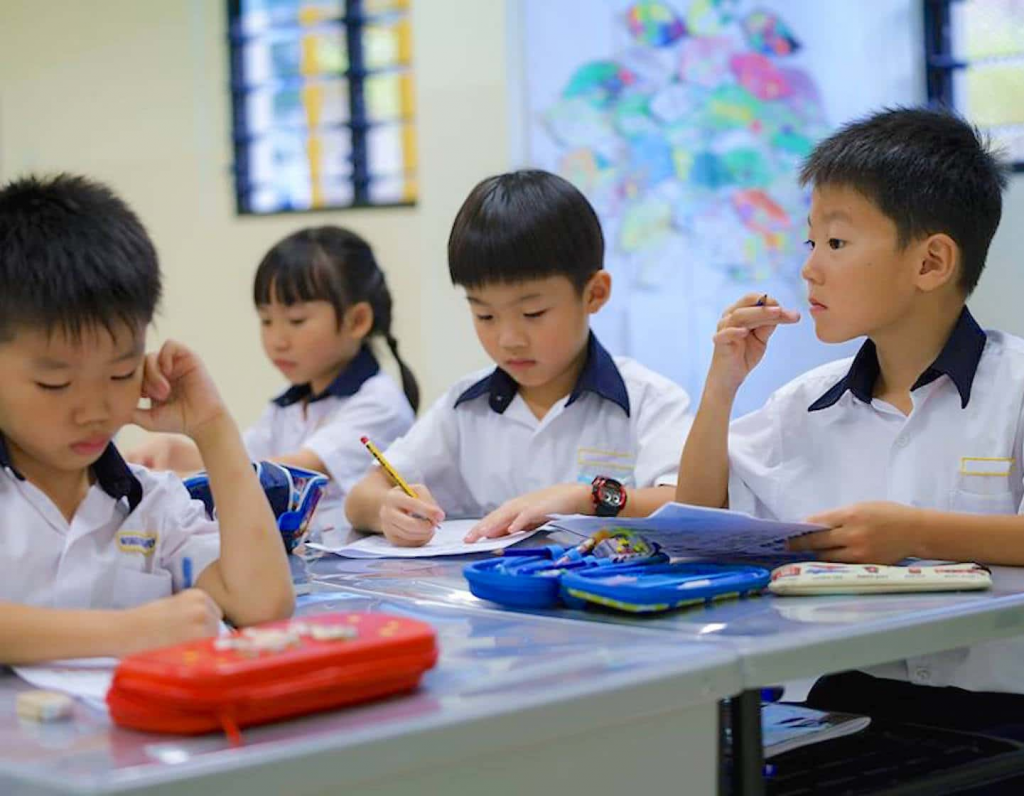
15 Feb 5 Tips To Help Your Child Adapt in Primary School

Being a primary school student is a big change from preschool. Your child may have gone from being the youngest in her class to being one of the oldest, or she may have switched from one-on-one attention to a large classroom setting and dozens of other children to compete for the teacher’s time. No matter what kind of transition your child is going through, there are ways that parents can help their children adapt to primary school better and foster an enjoyable learning experience.
When your child enters primary school, you may be surprised by how different the school environment is from that of preschool. As a parent, you can help your child adjust to this change by following these 5 handy tips.
1. Recreate a School Environment at Home
Preparation starts at home with proper discipline, organisation skills, and good study habits. It’s a challenge for many new primary school students in Singapore to adjust to the early mornings. Although many kids may have attended full-day preschools, they may find it difficult to manage the busy schedule in primary school because they have fewer breaks and more intensive lessons.
Therefore, create a schedule with your kids and go through their day with them as they get ready for their primary journey in Singapore.
Here’s how to recreate a school environment at home:
- Make sure your child’s school bag is packed in the morning.
- Use a calendar to keep track of homework.
- Create a homework routine and ensure your child knows where to find the supplies they need for their assignments.
2. Know the Difference Between Preschool and Primary School
This is important because these differences cannot be ignored or overlooked when it comes to preparing your child for his or her new environment.
Make a practice run of the route your child takes to and from school. Take your child on these trips so they can become familiar with the routes and learn who will be picking them up and when. This prevents them from being caught off guard once the journey is made familiar to them.

3. Help Your Child To Understand the Changes
Help your child understand the changes that are taking place. Talk about the new teachers and friends they will have, explain what will happen during the day, and how you are here to support them. For example, if they are having trouble with an assignment or a test, let them know that there are things they can do at home to prepare for it. Open lines of communication between you and your child can greatly reduce their anxiety.
Encourage your child to tell you about their day. It’s your responsibility to comfort them and listen to them. They are more open to talking about their encounters in class if they feel like you are there for them no matter what has happened during the day.
4. Establish a New Schedule and Routine
Talking to your child about daily activities like getting ready for school, playing with friends, and scheduling time for homework is beneficial when establishing a new routine. Your child may feel more at home if you do this.
There are also new subjects and a different schedule in primary school. Help them understand and follow these house and school rules. Given that waking time is now much earlier, be ready for the possibility that your child will need a nap or an earlier bedtime.

5. Instil Independence
Your child needs to learn independence, accountability, and responsibility for his or her possessions in addition to just concentrating on academics. They learn independence in our classes by being trusted with managing their school bags and supplies, returning and borrowing library books, and taking ownership of whatever they do.
If you are a parent who is sending your child off to primary school for the first time, you will likely experience mixed emotions.
However, for your child to adapt easily, you must prepare them well and make sure they feel comfortable from the get-go. A child who has a positive attitude towards school is more likely to succeed in their studies later on down the track. At NASCANS, we are committed to assisting you and your child as they adjust to the new routines and demands of primary school life through a multifaceted support system that enhances their academic and personal development during these critical formative years.


